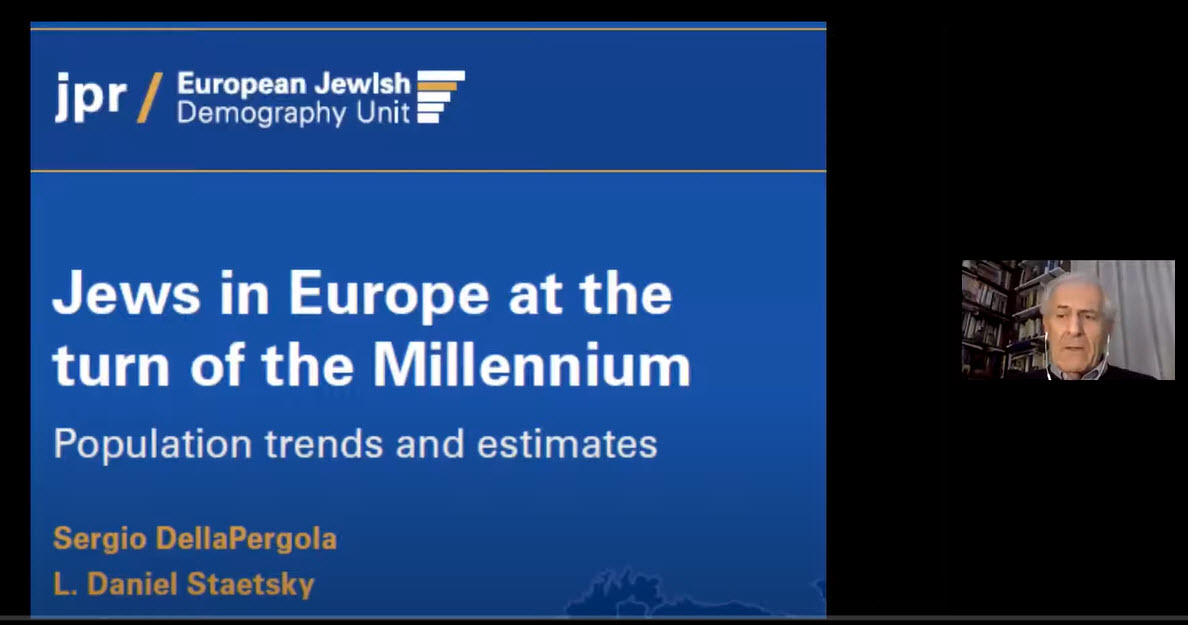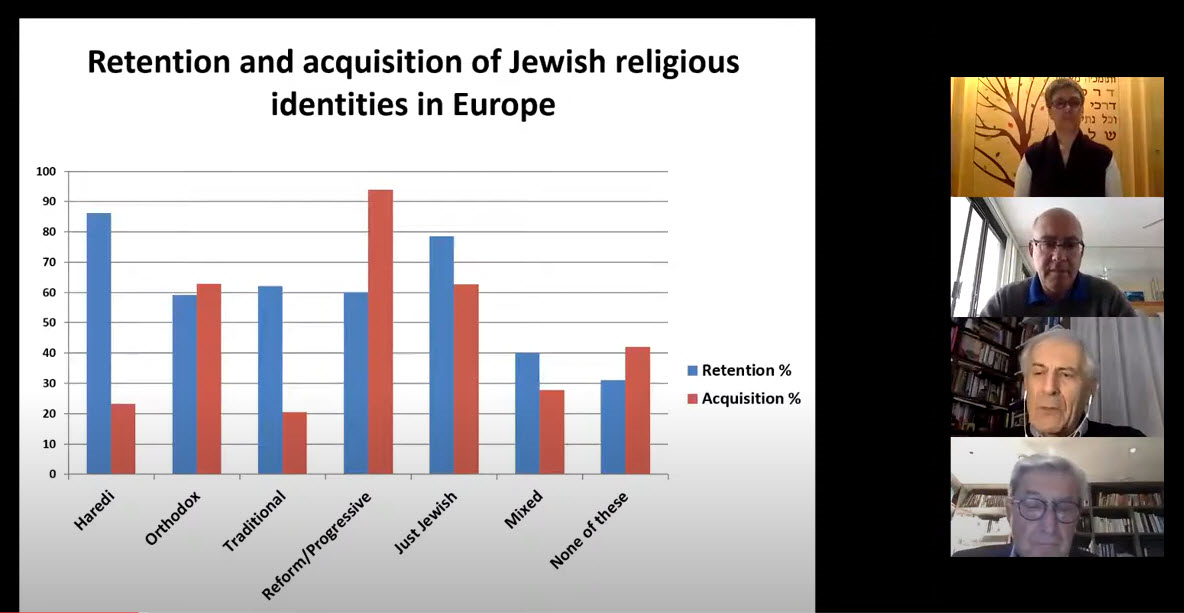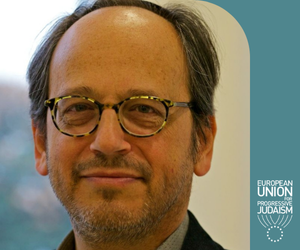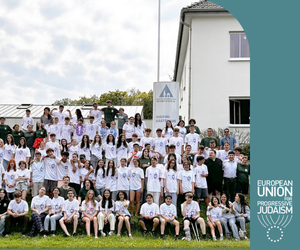Is There a Future for Jews in Europe?
By Bill Echikson, EUPJ Brussels Director
On Sunday, 31 January 2021, Bill Echikson, EUPJ Brussels Director, hosted our latest EUPJ webinar, a panel discussion on the topic, “Is There a Future for Jews in Europe?” Guest speakers included Prof. Sergio DellaPergola, Professor Emeritus of Population Studies at Hebrew University’s Avraham Harman Institute of Contemporary Jewry; Rabbi Pauline Bebe, the rabbi of the Communauté Juive Libérale, the Progressive Jewish congregation in Paris; and Leslie Bergman, Honorary Life President of the EUPJ.
This is a summary of the discussion written by Bill Echikson. You can watch the full discussion in the video below.
Don’t forget to tune into our next EUPJ webinar where Bill Echikson will interview Rabbi Sergio Bergman, President of the World Union for Progressive Judaism (WUPJ). Sunday, 21 February 2020 at 16:00 GMT / 17:00 CET. Details will be emailed to our mailing list and posted on our Facebook page.
***************
In the late 19th century, 88 percent of the world’s Jewish population lived in Europe. Today, a ground-breaking new study shows that the figure has tumbled to nine percent, including Britain, Turkey, and Russia – the lowest proportion in more than 800 years. Only 1.3 million people currently living in Europe define themselves as Jews. This is the same percentage of the total European population counted by famous Jewish traveller and scholar, Benjamin of Tudela, in 1170.
Yet the co-author of this alarming study, Prof. Sergio DellaPergola, told me in our latest EUPJ webinar* that we should avoid pessimism. European Jewry is persisting, even thriving, he insists. Rather than diluting Jewish ties, European Jews who marry out often come back into the fold. Our Progressive Jewish movement is gaining ground, while traditional Orthodoxy is stable. European Jewry’s centre of gravity has moved from the former Soviet Union to Western Europe.
DellaPergola is Mr. Jewish Demography, the unquestioned leader in the field. He has published numerous books and more than 300 papers and has lectured at more than 100 universities and research centres in Western and Eastern Europe, North America, Latin America, South Africa and Australia. Born in Trieste when Italy was under German occupation, his family was fortunate enough to escape to Switzerland. After the war, they settled in Milan and he immigrated to Israel in 1966. DellaPergola participated in our webinar from his home in Jerusalem.

Top L-R: Rabbi Pauline Bebe and Bill Echikson.
Bottom L-R: Prof. Sergio DellaPergola and Leslie Bergman
The top line is alarming. From 3.2 million in 1970, European Jewry has dropped to a total of 1.3 million. Most of the loss occurred after the breakup of the Soviet Union, with the former communist empire’s Jewish population leaving for Israel and other more stable and prosperous destinations.
Another community that has experienced a decline is British Jewry. Over the past few generations, it has lost about a quarter of its population, or about 100,000 members. The decline stemmed from a low birth rate and emigration, DellaPergola says. But in recent years there has been a reversal of the trend and Anglo Jewry is becoming more stable, even growing marginally.
In contrast, Jewish communities in continental Western Europe have grown in numbers and engagement. DellaPergola points to France, which saw a dramatic increase in its Jewish community, thanks to hundreds of thousands of Sephardic immigrants from former North African colonies. Much publicized recent emigration from France to Israel, spurred by antisemitism and economic factors, has brought many tens of thousands of Jews to Israel and other countries.
“Jews tend to settle in places where economic opportunities and democratic development are the biggest,” says DellaPergola. “Antisemitism is a secondary factor compared to underdevelopment and a lack of democracy.”

Prof. Sergio DellaPergola introducing the topic
Europe’s Jewish population is changing in structure. A high rate of intermarriage in the second half of the 20th century was seen as a threat initially. But DellaPergola says children with one Jewish and one non-Jewish parent tend to keep a stronger connection to their Jewish identity than in the past. In a survey conducted by the London-based Institute for Jewish Policy Research (JPR), of 16,000 European Jews across 12 countries, with the support of the European Union’s Fundamental Rights Agency (FRA), he found that the younger Jews are intermarrying less often than their parents did.
In addition, European Jews are becoming more progressive. About five percent of European Jews are ultra-Orthodox (Haredi) compared to eight percent who consider themselves Orthodox and 24 percent who say they are traditional. These percentages are stable, but Progressive Judaism is growing – from 10 percent a few decades ago, it has reached 15 percent of the total.

Prof. Sergio DellaPergola presenting his findings
According to our second panellist and France’s first female rabbi, Rabbi Pauline Bebe, a generation ago, France counted one Progressive synagogue. “Today, it counts 15 and last year’s creation of L’Ecole Rabbinique de Paris, our new Progressive rabbinical school in Paris, is witness to this growth,” she says.
Leslie Bergman, the EUPJ’s Honorary Life President and the final panellist, supported this observation. In the 17 European Union countries in which the EUPJ operates, he said its membership is growing in all of them, sometimes significantly, such as in Poland, Italy, and Spain.
“The activities of our communities have expanded. They have become more vibrant,” he says. “Throughout Europe, any observer looking at European Jewry today would have to conclude that there are more signs evident of a renewal of Jewish life than 10 years ago, even if the percentage of Jews is falling.”
European Jews tie their future prosperity and safety to the success of the European Union. In large numbers, Jews support the EU and its commitment to democracy, human rights, and protection of minorities. In Hungary, for example, 61 percent of Jews are in favour of the EU compared to 19 percent of the total population. Elsewhere, the gap is less pronounced, but still visible.
“Nationalism in Europe is not good for Jews,” says DellaPergola. “Historically, Jews found more tolerance and personal opportunities in large political frameworks characterized by internal diversity and strong transnational connections, while their position went from bad to tragic in politically-monolithic and economically-autarchic states.
“Pluralism of cultures and beliefs, and free circulation of ideas, people, goods, and services were the ideal of a united Europe, but unfortunately, today there are strongholds of opposition to these ideals,” he says.
Europe may no longer be the heart of World Jewry, as it was for two millennia. Eighty-five percent of global Jewry lives in Israel or the United States. But DellaPergola gives a cautious answer to the provocative question, “Is there a future for Jews in Europe?” – “If Europe thrives, the Jews will thrive.”
* The European Union for Progressive Judaism (EUPJ) hosts regular webinars on issues related to European Jewry, World Jewry, Progressive Judaism, and more. You can watch previous webinars here.
This article was originally published in The Times of Israel.








